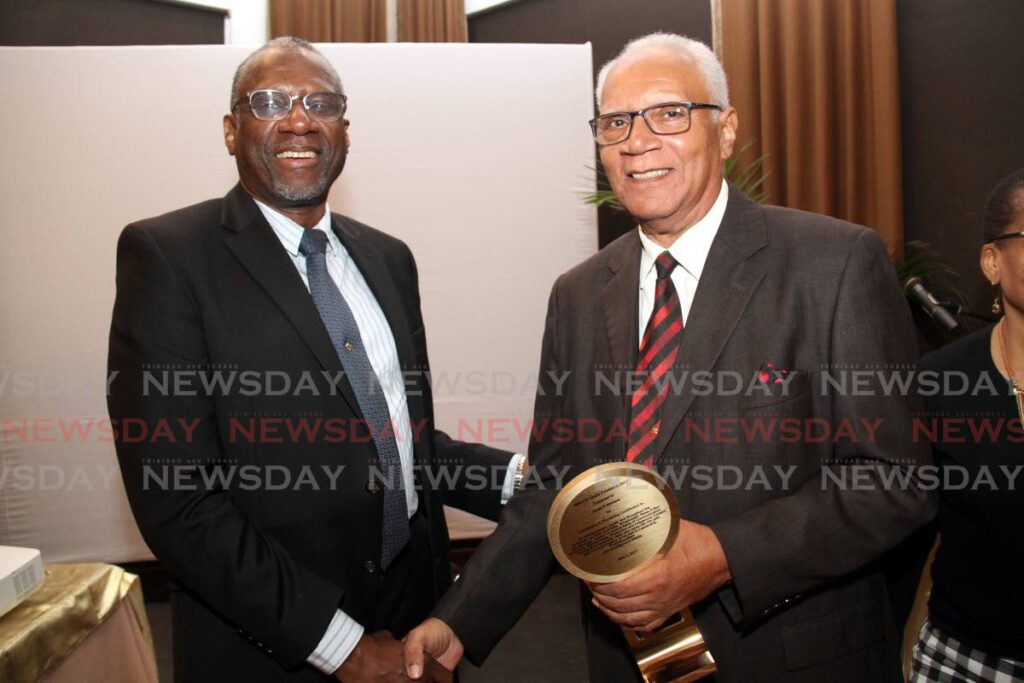Gaspard’s lament

TERRENCE W FARRELL
SO DPP Roger Gaspard SC has decided, sensibly in my view, to discontinue the proceedings against certain individuals in the Piarco Airport corruption matter. We don’t know and will never know how many man-hours were spent on that case and what it cost taxpayers, but it would certainly be in the millions.
Despite languishing in the Corruption Perception Index, Trinidad and Tobago has, to date, not recorded a single successful prosecution for any white-collar crime. It is why the EU continues to "blacklist" us saying: "Yes, you’ve passed legislation, but you have secured no prosecutions or convictions!"
The Colman Report into Clico, which cost taxpayers millions of dollars, was handed over to the DPP some years ago. We’ve heard nothing of it since. Its contents remain a state secret and those CL Financial executives and directors then involved, continue to have the matter hanging over their heads.
In his interview with I95.5FM, Gaspard indicated that the criminal justice system is close to collapse. He is absolutely right! In fact, it has already collapsed, judged not only by failed prosecutions such as the Piarco Airport matter, but also by the chronic delays, and the hundreds of prisoners on remand who cannot get bail but also cannot get a hearing to establish their innocence or enter a plea. This collapse cannot and should not be laid at Gaspard’s door as the current incumbent. It is a structural issue of long gestation.
When I was at law school some ten years ago, the majority of students were female and most of the graduates expressed no desire whatsoever to pursue careers in criminal law. Those who did pursue careers in criminal law opted to be defence attorneys rather than state prosecutors.
Speaking as an economist, it is clear that if there are shortages in any particular field, the wage rate in that field has to be increased in order to attract workers. If the work is considered to be particularly dangerous or onerous or abhorrent (which criminal prosecution can sometimes be), then a premium has to be paid to those workers.
We have known for a long time that the DPP’s Office is understaffed, not just in terms of numbers, but also in terms of the competencies required to prosecute complex cases. So addressing the problem requires not only higher compensation but also training in forensic accounting to "follow the money" and how complex matters should be handled from investigation through to the courtroom.
White-collar criminals hire the best and brightest defence attorneys, and the State also needs to be equally well-equipped. That is why, for example, the UK maintains a serious fraud office.
However, as Gaspard pointed out in his interview, he is not in charge of hiring state prosecutors, cannot appoint contract staff, and has no control whatsoever over what they are paid. Hiring is the purview of the Judicial and Legal Service Commission (JLSC) and, in turn, the office of the Director of Personnel Administration which services all the service commissions.
The Bernard Committee, convened by the Law Association in 2016, had recommended that the JLSC be split into two commissions, one to deal exclusively with the appointment (and removal) of judicial officers and those legal officers appointed under the Constitution (such as the DPP), and the other commission to deal with the appointment of the hundreds of state counsel and legal officers who are just public servants.
It also recommended that that Judicial Appointments Commission have its own secretariat and not rely at all on the Director of Personnel Administration.
It is not as if we haven’t seen the problem looming. It is not as if we don’t know what to do to address organisational problems like these. But it is the failure to take decisive action across a wide range of chronic societal issues – WASA, T&TEC, the Children’s Authority, the criminal justice system, homeless people on the streets of our cities, school violence – that prompts the frustration and give weight to epithets such as: “Trinidad is not a real place” or “We like it so!”
If we are a "real place" and if indeed we do not like it so, why don’t those who lead us address these problems frontally, decisively and in a timely manner? The answer is that our policymakers are guided or influenced by other interests and incentives which cause resources to be misallocated and wasted, and cause institutional inertia to prevail.
I feel for Roger Gaspard. In addition to enduring the structural failings of the Office of the DPP, which are not in any way his fault, he has endured a measly public servant’s salary while his senior counsel counterparts in civil or criminal practice have enjoyed million-dollar briefs, some issued from his own department.
Several of his predecessors in office and his deputies have departed for the bench, either to the Eastern Caribbean or here in TT, to enjoy better salaries and perks and post-retirement pensions. He, however, can look forward, perhaps, to a national award, the proverbial "pat on the back," and retirement into the genteel poverty which is the lot of the senior public servant.


Comments
"Gaspard’s lament"